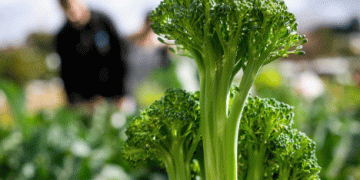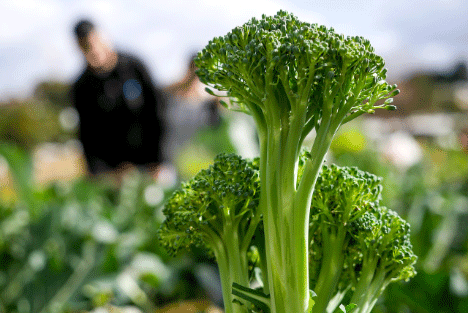Mexico has experienced substantial growth in its agricultural export sector, particularly with five key crops—chili, broccoli, cauliflower, lemons, and cucumbers. According to the Secretariat of Agriculture and Rural Development (Sader), this year Mexico rose to the position of the second-largest exporter of these products, solidifying its standing as a major player in the global agricultural market.
The remarkable rise in exports is primarily driven by a combination of factors, including heightened global demand for fresh produce, the dedication of Mexican producers, and the country’s extensive network of 14 free trade agreements with 51 nations. These trade deals have allowed Mexico to reach a staggering market of over 1.376 billion consumers, propelling it to become the ninth-largest food exporter in the world. The boost in both the quantity and value of exports highlights Mexico’s capability to meet international needs while positioning itself as a critical contributor to global food production.
Chili Exports:
One of Mexico’s most iconic crops, chili, saw a marked increase in demand, particularly in North America and Europe. In recent years, chili exports alone have contributed to Mexico’s agricultural growth, making up a significant portion of its total agricultural export value. The cultivation of varieties such as jalapeños, habaneros, and serranos has captured global attention due to their high quality and distinct flavor profiles, helping to boost Mexico’s reputation as a key chili supplier.
Broccoli and Cauliflower:
Mexico has also excelled in the production of broccoli and cauliflower. These vegetables have seen increasing popularity in global markets, especially in Europe and the United States, where healthy eating trends and plant-based diets have surged. According to Sader, broccoli and cauliflower exports have not only expanded in volume but also in monetary value, thanks to enhanced cultivation practices, improved supply chains, and Mexico’s proximity to major consuming countries.
Lemon and Cucumber Exports:
In the citrus and vegetable segments, lemons and cucumbers are two crops that have grown exponentially in both volume and value. Mexico’s lemon exports, particularly to the United States, have increased by 40% over the past five years. Similarly, cucumbers, essential to various international cuisines, have seen a rise in demand, with European and Asian markets showing particular interest.
As a result, these exports have significantly contributed to strengthening Mexico’s agricultural sector, which now accounts for a large portion of the country’s GDP.
The Role of Free Trade Agreements:
A critical factor in Mexico’s agricultural success is its extensive network of free trade agreements, including the United States-Mexico-Canada Agreement (USMCA) and partnerships with the European Union and Asia-Pacific nations. These agreements have enabled Mexican farmers to access broader markets with reduced tariffs and streamlined logistics, giving them a competitive edge. With 51 nations in its trade portfolio, Mexico is well-positioned to continue expanding its global agricultural footprint.































